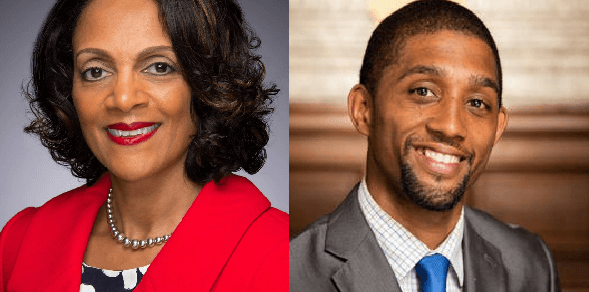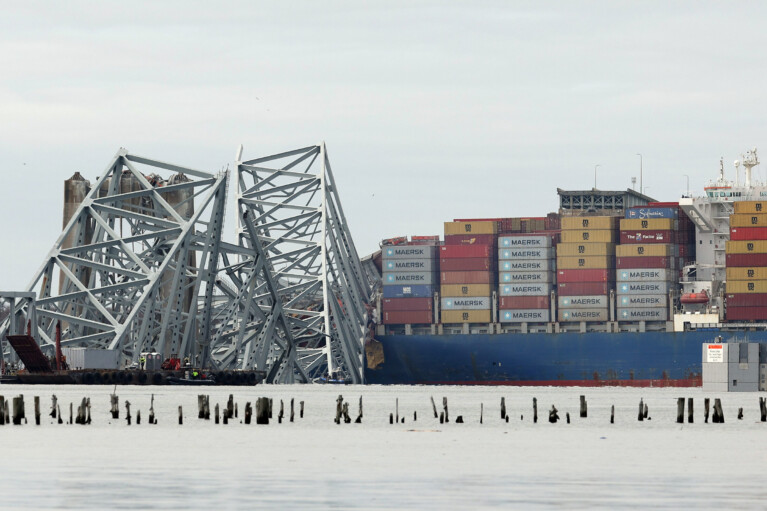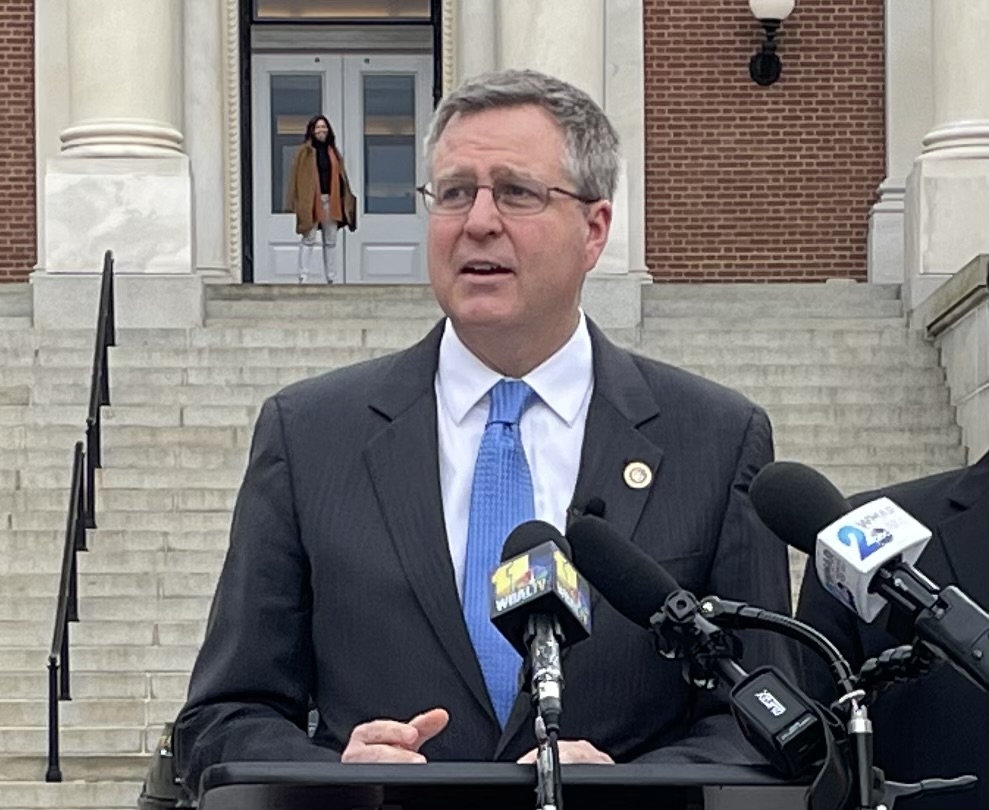Leading Candidates for Baltimore Mayor Stuck in Limbo

On a normal election night in Baltimore, voters quickly have an idea of who their newly elected officials are. Candidates are usually able to declare victory within hours of the polls closing.
It’s now been a week since polls closed in Maryland’s glitch-ridden June 2 primary, and candidates and residents alike are stuck in limbo as they await final results. Baltimore’s Democratic mayoral primary has been particularly contentious, with frontrunners Brandon M. Scott and Sheila Dixon exchanging leads as nightly updates are posted.
Initial vote counts showed Dixon with a wide lead over Scott, but as of Tuesday morning Scott held a narrow lead of just under 1,400 votes. Both candidates were cautiously optimistic about their positions in one of the most unusual primary elections in recent history.
Dixon, the former mayor of Baltimore, said she spent time on Saturday grilling elections officials about why it’s taking so long to process mail-in votes. The answer was that, in some cases, staff have to hand-duplicate ballots before they’re processed. Emailed ballots have to be duplicated, as well as ballots from Baltimore City Council District 1 – which elections officials said had a “small proofing error.”
Dixon and Scott, the Baltimore City Council president, have both expressed frustration over how the election has been handled. Scott sent a letter to Maryland’s attorney general last week outlining some of his concerns, which he says he brought up to officials even before the election.
“We tried at the council level before the elections and get the Board of Elections to come in and give us updates, because we were worried about people getting their ballots,” Scott said.
While a core group of her staff are still rallying supporters and checking in with election officials, Dixon said some of them have taken time off. As elections staff methodically plod through ballots, candidates are doing less campaigning and more waiting.
“Life still goes on,” Dixon said.
Scott said he’s been kept busy by the council’s annual budget week. While Scott and his fellow council people mull over how to balance the city’s multibillion-dollar budget, some of his staff check in daily with election officials for the latest results.
“There’s no time for me to stick around and twiddle my thumbs,” Scott said. “I actually have work to do, so I remain focused on the task.”
Scott sees a silver lining in the mishaps and election setbacks: voter turnout. Despite late or completely undeliverable ballots, misprints and long lines, voters in Baltimore turned out in record numbers.
The Baltimore City Board of Elections had processed more than 155,000 votes as of Tuesday morning, Armstead B.C. Jones Sr., the city’s election director, said. That number was already higher than in the 2016 presidential primary election, when the city tallied just over 148,000 votes. Jones also estimated roughly 6,000 regular ballots and around 2,000 provisional ballots still had to be counted.
That high voter turnout came amid a global pandemic and protests over police brutality and systemic racism.
“People came out to vote in any way that they could,” Scott said, “Overcoming all of the barriers that were put in front of them.”
Dixon also said she was happy to see a higher-than-average voter turnout, and said she was encouraged by the presence of new voters at the polls. She said she saw long lines at a number of polling places last Tuesday, adding that it was a sign that voters “want to be a part of the process.”
Dixon and Scott both said they’ve continued to reach out to their supporters since election day. Since the coronavirus pandemic halted in-person campaigning and delayed the primary, the candidates have been doing most of their outreach digitally.
Dixon said a number of supporters have raised concerns about the election process. She’s heard a variety of reports from worried voters, who are pointing out issues like ballots being delivered for people who have died.
“I just think the board of election shows up once every four years versus working on fixing these challenges and issues,” Dixon said.
The eventual winner of the Democratic mayoral primary will be heavily favored in the November general election, but will still have to go through 4 1/2 more months of campaigning.
While Baltimore might have a more up-to-date primary count as of Wednesday night, the fallout from election errors is unlikely to stop after results are certified on Friday. Scott and Dixon have both indicated that they spoke to lawyers and their legal teams in the wake of the primary, and a slew of officials have called on the state’s top election administrator to resign.
Linda H. Lamone, Maryland’s embattled elections administrator, previously blamed lies from a printing vendor and a lack of time to prepare for some of the election woes.
“We’re going to do what we always do,” Lamone told officials in a heated meeting after the election. “We’re going to look to see how we can do things better.”




 Creative Commons Attribution
Creative Commons Attribution